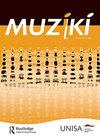Metaphor, Identity and Ideologies in Igbo Folk Music
IF 0.8
0 MUSIC
引用次数: 1
Abstract
ABSTRACT Egwu Ekpili is a highly dynamic and symbolic Igbo folk music that responds to social and political tensions in Igbo land in particular, and Nigeria in general. It deploys conventional and conceptual metaphors to articulate salient Igbo identities and ideologies, as well as represent or critique political power structures and relations. Hitherto, studies on Igbo folk music have examined performance styles, compositions, and aesthetic and utilitarian values from the ethnomusicological and literary (socio-political satire) perspectives, with little attention to the role of metaphor as a tool for representing socio-political and cultural realities in the Igbo society – whereas Egwu Ekpili is replete with metaphorical expressions, perceived to be critical to the full understanding of this unique Igbo folk music genre. From a critical metaphor perspective, this study examines the strategic deployment of metaphor in representing identities and ideologies in selected songs of three popular and foremost Egwu Ekpili musicians, namely Gentleman Mike Ejeagha, Chief Akunwata Ozoemena Nsugbe and Chief Emeka Morocco Maduka. The study integrates ideas from Charteris-Black's Critical Metaphor Theory to explicate a typical Nigerian socio-political system and structure fraught with power struggle, dominance and embezzlement. Metaphors from five source domains of animal, journey, plant/food, war/conflict and family represent the ideological positioning and inclinations of the Igbo people.伊博民间音乐中的隐喻、身份与意识形态
摘要Egwu Ekpili是一首极具活力和象征意义的伊博族民间音乐,它回应了伊博人的社会和政治紧张局势,尤其是尼日利亚。它运用传统和概念隐喻来阐明伊博人的显著身份和意识形态,并代表或批判政治权力结构和关系。迄今为止,对伊博族民间音乐的研究从民族音乐学和文学(社会政治讽刺)的角度考察了表演风格、作品以及美学和功利价值,很少关注隐喻作为代表伊博社会中社会政治和文化现实的工具的作用——而埃格武·埃克皮利充满了隐喻表达,被认为对充分理解这种独特的伊博族民间音乐流派至关重要。本研究从批判性隐喻的角度考察了埃格武·埃克皮利三位著名音乐家的歌曲中隐喻在代表身份和意识形态方面的战略部署,他们分别是绅士迈克·埃赫阿加、酋长阿昆瓦塔·奥佐梅纳·恩苏贝和酋长埃梅卡·摩洛哥·马杜卡。本研究综合查特里斯·布莱克的批判性隐喻理论,阐释了尼日利亚一个典型的充满权力斗争、统治和贪污的社会政治体系和结构。来自动物、旅程、植物/食物、战争/冲突和家庭五个来源领域的隐喻代表了伊博人的意识形态定位和倾向。
本文章由计算机程序翻译,如有差异,请以英文原文为准。
求助全文
约1分钟内获得全文
求助全文

 求助内容:
求助内容: 应助结果提醒方式:
应助结果提醒方式:


